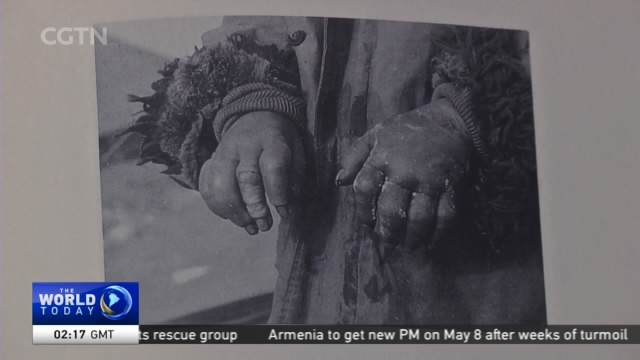
10:59, 06-May-2018
Lessons From The Past: Researchers uncover Japanese wartime experiments in China
02:19

Chinese researchers are uncovering secrets of Japanese experiments on humans during their wartime occupation of China. And they are getting help from Japan. Our correspondent Chris Wheelock bring us the story. A word of warning though, you may find some of the following images disturbing.
For the first time, we are learning the identities of Japanese who served in a covert unit that carried out grisly experiments on Chinese during World War Two.
Chinese researchers have published a detailed roster of Unit 1855 -- a secret Japanese army unit that worked at a facility in occupied Beijing from 1938 to 1945.
JIN CHENGMIN MUSEUM CURATOR "It is supposed to be an 810-member unit, but the roster we acquired has 1,242 names on it. That means they added more people whenever needed. It also indicates that what the unit did required a lot of manpower."
The researchers also released records about the experiments the Japanese conducted including exposing Chinese teenagers to severe cold outdoors to measure frostbite. The test subjects inevitably died.
JIN CHENGMIN MUSEUM CURATOR "After undergoing 20 days of frostbite experiments, the bodies of these people were reused as materials for other tests including trauma experiments, gun penetrating power test, trauma surgery exercise. They died in the experiments and were buried in that place."
The Chinese researchers spent more than a year investigating the records, which they obtained from the National Archives of Japan. The study comes at a time of warming bilateral ties between the two east Asian neighbors.
Just days ago, China's top legislator Li Zhanshu met with a Japanese delegation in Beijing. He said when China urges Japan to remember its past, it's not to renew hatred but to learn from it and avoid repeating mistakes.
A Japanese civic group had a similar idea. It recently held an exhibition in Yokohama about Japan's war crimes in China. Evidence of Japanese biochemical experiments was also on display. Chris Wheelock, CGTN.

SITEMAP
Copyright © 2018 CGTN. Beijing ICP prepared NO.16065310-3
Copyright © 2018 CGTN. Beijing ICP prepared NO.16065310-3